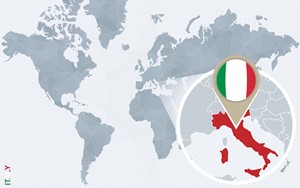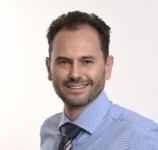The Education of Project Management in Italy:
The Italian context, ISIPM motivation and activities,
PMI Italy chapters experience and history
REPORT
By Alessandro Quagliarini
International Correspondent
Rome, Italy
Introduction
This first 2022 Regional Report will be a short resume concerning the effort, embraced by PM Associations throughout the last two decades of 21st century, in order to create Project Management educational patterns which are able to exploit the affinity of the PM discipline with the most common skills people use in their everyday life. Every year, in Italy, there are about 8 million students, and not less than 450 thousand of them are trying to close their secondary school cycle. From this point on, it is expected that students have been acquired the citizenship key competencies, in other words the “skills for life”. In this report, we will show how those skills and competencies can be compared with the key concepts and principles of Project Management, and how PM Associations tried and are trying to help Italian school system to improve their results.
The Italian context of reference
The need to bring both new instruments and a higher awareness of their abilities and competencies to 21st century generations emerged on our continent in December 2006, when the European Parliament issued a recommendation (2006/962/EC) on “key competences for lifelong learning” to which the Member States should have responded by producing a renewed training offer incorporating the new strategic reference framework. As a response to that, in August 2007, the Ministry of Education issued the “Italian Law from 2007 for the new obligation of education” in which the transposition of the European recommendation resulted in a set of actions with the objective of directing all students, through four pivotal cultural axes (axis of languages, mathematical axis, scientific-technological axis, historical-social axis), to the acquisition the following “key competences of citizenship”:
- Learning to learn: each young person must acquire his own method of study and
working - Designing: every young person must be able to use the knowledge learned
to give themselves meaningful and realistic goals. This requires the ability to identify priorities, assess existing constraints and possibilities, define action strategies, make projects and to verify their results - Communicating: every young person must be able to understand messages, handling different levels of complexity in the various forms of communication and must be able to communicate effectively using different languages
- Collaborating and participating: every young person must know how to interact with others understanding the different points of view
- Acting independently and responsibly: every young person must be able to recognize the value of rules and personal responsibility
- Solving problems: every young person must be able to face problematic situations and understand how to solve them
- Identifying links and relationships: every young person must have the tools that
allow him to face the complexity of living in the global society of our time - Acquiring and interpreting information: every young person must be able to acquire and critically interpret the information received by assessing its reliability and usefulness, separating facts from opinions.
One interesting aspect is the transversality of the skills mentioned above; they can be acquired through the action of all four cultural axes, which for us can be translated into the fact that they might be achieved by a student of Classical, Scientific, Technical or any other kind of Institute or High School.
More
To read entire report, click here
How to cite this work: Quagliarini, A. (2022). The Education of Project Management in Italy; Project Management Update from Rome, report, PM World Journal, Vol. XI, Issue IV, April. Available online at: https://pmworldlibrary.net/wp-content/uploads/2022/04/pmwj116-Apr2022-Quagliarini-Education-of-Project-Management-in-Italy-report.pdf
About the Author

Alessandro Quagliarini
Rome, Italy
![]()
Alessandro Quagliarini, MScEng, PMP, MBA, is an experienced Program Manager, with more than 18 years of experience in the ICT sector. He holds a Master’s Degree in Telecommunication Engineering from the University of Rome “Tor Vergata” and a Doctor’s degree in Business Administration from the Bologna University Business School. He got both PMP® and ISIPM-Av® advanced certifications in Project Management, and he is also certified as an Information Management Systems Lead Auditor. He is a Member of the Board of the “Italian Institute of Project Management” (ISIPM) for ten years, and he is an Accredited Teacher in Project Management.
Alessandro is currently engaged in the “Digital Transformation” engineering and industrialization programs of the new Italian “Open Fiber” telecommunications network, with particular focus on the engineering of delivery and assurance processes for the provision of retail, business and industries customers, on the operational management and procurement support for the definition of specifications and contracts, on the definition of operating rules/ instructions for maintenance and of requirements for systems development, on the support to the commercial and regulatory lines for the definition of services and processes for customers (Other Licensed Operators and Industries), and on the definition and management of operations compliance with ISO Standards and International Best Practices.
As a Member of the ISIPM Board, he focuses his volunteer activities mainly on the cultural diffusion of the project management to young people – specifically to high school students and also staff, including teachers. As an ISIPM accredited teacher, he has taught project management in public and private institutions, in schools and in universities. He has experience in the organization of events and as a speaker in conferences, and also in proposing and managing EU-funded projects.
Alessandro can be contacted at a.quagliarini@gmail.com









